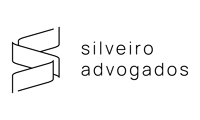By Ricardo Leal de Moraes and Julia Batistella Machado
The Brazilian Clean Company Act which entered into force last month, requiring a series of new efforts from every national and foreign company with headquarter, branch or representation in Brazil, independent of size.
Among the most important changes is the civil liability of companies for acts of bribery of national or foreign officials, and for infringements in public biddings, that now becomes possible regardless of guilt. It means that companies can be penalized for employees or third parties acts, even if there is no proper authorization or actual knowledge of the administration, provided it can result in any advantage on the course of the business.
With special concern, the Act endows to a great number of public authorities the competence to apply its sanctions, while there are no clear legal standards for such enforcement yet. The superior authority of each body of the executive, legislative and judiciary branches, as well as public companies, mixed capital companies and autarchies linked to it, from the Union, the Federal District, the States and all the Municipalities that adopt it, will have the power to decide and apply fines up to R$ 60.000.000,00 (or 20% of the company gross earnings). Said fines can be also registered as an overdue tax liability debt, being directly executed through a judicial proceeding.
Judicial Courts can apply even more serious sanctions, like seizure of assets, suspension or partial interdiction of activities, compulsory dissolution of the company and prohibition to receive public incentives, subsidies, subventions, donations or loans. It should be noted that, although it is namely a "civil liability", the provided sanctions to the company are much more serious than the environmental law criminal liability for instance, and yet excluded from all the grants and defenses usually held in a criminal prosecution.
To prevent such significant risk, it is up to companies of all sizes to establish a robust and effective compliance program according to the Brazilian Clean Company Act. This program shall be developed continuously and include risk assessment, support of high administration, internal and third parties policies and controls, communication and training, monitoring and auditing and investigating and reporting. Besides diminishing the actual probability of occurrence of the infractions, the previous establishment of a compliance program is expressly set as a mitigating factor for the company liability.
The program shall be dully documented, keeping attention to the numerous particularities of the Brazilian Act, and also to principles internationally applied regarding the combate of corruption. Although the Act is influenced by other foreign legislations, such as American FCPA or UK Bribery Act, the peculiarities of the new Brazilian Act can lead to the inefficacy of measures taken in simple transference of foreign programs.
Since there is no established formula, the compliance program should vary accordingly to the risks of the area and scope of activity of the company, as well as its size and the human capital available for this implementation. The report structure, for instance, can require the designation of a full time employee or a partial time one; audits can involve interviews in loco or the signature of a specific conduct code. This and many other options should be considered always together with the company, in a careful analysis of the case and the risks involved.
The liability remains after mergers or acquisitions, with equal possibilities of joint liability of the group companies and disregard of the legal entity to reach the partners. Therefore, previous anticorruption due diligence of the target company may also become necessary, in order to scan, escrow and counter issues according to Brazilian law.
____________
* Ricardo Leal de Moraes and Julia Batistella Machado are lawyers of Silveiro Advogados.
